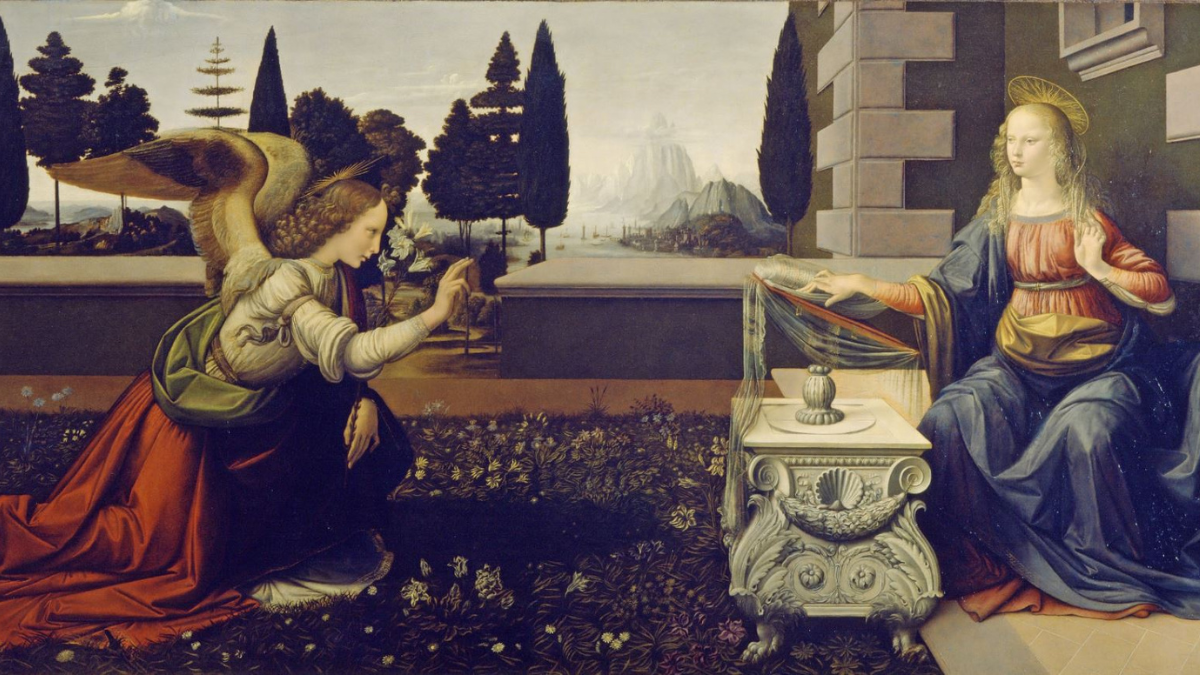

Mary’s Magnificat: The Wait Is Over
Today, we do not wait for the Messiah to bring salvation. We wait for the Messiah to return, when He will reveal Himself fully as King and restorer of all creation.
12/13/22
John Stonestreet Maria Baer

Every year, millions of people visit the Western Wall of the Temple Mount in Jerusalem. The exposed surface where people tuck prayers between the stones is only a fraction of the original wall that bordered the Temple before its destruction in A.D. 70. Much of the rest sits underground, where visitors gain access only through a series of tunnels.
At one spot, where part of the original Second Temple wall sits exposed, Jewish women are allowed to gather and pray. Some come every day and stay for hours. They’re praying, in large part, for the Messiah’s coming.
As Christians who live more than 2,000 years after Jesus’ birth, it can be difficult to understand that kind of waiting. Even in the midst of our Christmas celebrations, the coming of Jesus into the world can seem mundane, a less than historical event, or even worse, just another cultural ritual with a vague sense of religion attached.
For devout Jewish people, hope in the salvation of the Lord has meant thousands of years of waiting for one singular event, promised first to Adam and Eve in the garden. There, in the wake of their sin, God promised to “put enmity” between the offspring of the serpent and the offspring of the woman. This very first Messianic prophecy was repeated and clarified throughout the Old Testament, with increasingly rich detail. Isaiah, for example, said that a “virgin shall conceive and bear a son, and shall call his name Immanuel,” meaning “God with us.”
Mary knew these promises. So, when the angel Gabriel told her that her unexpected baby was to be the “Son of the Most High,” would sit on the “throne of his father David,” and would “reign over the house of Jacob forever,” she clearly understood, at least to some degree, what it all meant. Elizabeth and Zechariah did too. Along with Mary, after receiving word that they would have a son, they responded with worship to God for fulfilling His promises.
“My soul magnifies the Lord, and my spirit rejoices in God my Savior,” Mary sang. “For behold, from now on all generations will call me blessed; for he who is mighty has done great things for me. … He has helped his servant Israel, in remembrance of his mercy, as he spoke to our fathers, to Abraham and to his offspring forever.” Her song is called “The Magnificat,” which in Latin means “my soul magnifies.”
The incarnation of Jesus was no mere historical blip, or some rare interference in the “real” world by an otherwise remote and otherworldly God. This was, as C.S. Lewis once put it, “the central event in the history of the Earth—the very thing the whole story has been about.” Mary’s understanding of the world, like that of all devout Jewish people, was centered around waiting for this event to happen. This was no metaphor, no sign of a coming salvation, as Jewish rites and feasts were understood to be. This was it. This was the salvation to which so much of Israel’s history pointed.
Mary accepted her role in this event with a particular grace and humility. Her expression of worship is amplified by her example of radical self-sacrifice. Not only did she consent to the shame of an unexpected pregnancy or the challenge of an unexpected baby, the prophet Simeon told her that “a sword will pierce through your own soul.” Still, she said yes.
Today, we do not wait for the Messiah to bring salvation. We wait for the Messiah to return, when He will reveal Himself fully as King and restorer of all creation. Like Mary’s understanding of His first coming was shaped by the larger story of God’s promises, so too our Advent disciplines and Christmas celebrations can only be properly understood in light of a bigger story. Soon enough, like Mary, we’ll burst into song at the news of Christ invading this world.
John Michael Talbot offers a particularly beautiful rendition of Mary’s Magnificat, as do Keith and Kristen Getty.
Today’s Breakpoint was co-authored by Maria Baer. For more resources to live like a Christian in this cultural moment, go to colsoncenter.org.
Have a Follow-up Question?
Up
Next

Related Content

© Copyright 2020, All Rights Reserved.













